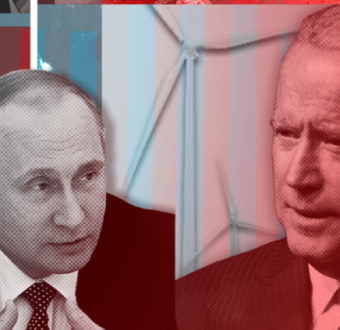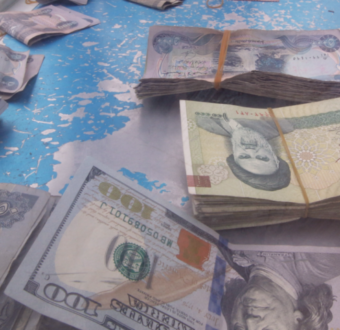The Great Power of Ukraine

Why a hard-won diplomatic victory is so important for the United States.
By Zuri Linetsky, Research Fellow
This article appeared in Inkstick on February 15, 2022.
The current crisis in Ukraine intensifies a stalemate over European security into a standoff between three great powers. Russia caused the crisis when it moved an estimated 130,000 troops toward Ukraine’s borders and issued a set of demands, which the US swiftly rejected. The US asked China to use its influence with Russia to help facilitate a diplomatic solution to the standoff. But instead, the Chinese Foreign Minister validated Russian security concerns about NATO’s eastward expansion and encouraged all countries to deescalate tensions. Then, at the UN, China rejected the American claim that Russian military mobilization threatened global security and asserted that the probability of a war in Ukraine is exaggerated by the US, deepening its involvement and ties to Russia. What the Biden Administration does next in Ukraine will either increase the likelihood of war with China or enhance its ability to protect US interests in Asia.
Concessions to Russia in Ukraine could defuse tensions in the long-simmering conflict and signal to China that the US does not need to rely on force to get what it wants. However, allowing a limited war in Ukraine to occur may undermine US policy toward Taiwan and increase the likelihood of a future conflict between the US and China over Taiwan.
Some American foreign policy experts think a war in defense of Ukraine is critical to protect the American-led global order and the credibility of the American security commitment to Taiwan. Others say drawing parallels between Ukraine and Taiwan is lazy analysis. They all ignore the fact that China learns from every American military and diplomatic decision, as Rush Doshi demonstrated. The United States must focus on what China learns from American choices in this Ukrainian crisis, as China’s lessons will inform Sino-American relations in Asia.
Diplomatic concessions in a negotiated resolution to the Ukrainian standoff would reinforce American commitments to Asia in several ways. First, China uses the threat of military force cautiously to achieve its interests, and uses diplomacy and economic inducements at least as often as coercion. Concessions therefore bolster the Biden Administration’s reputation with China for effective diplomacy. Second, China evaluates the credibility of US commitments in Asia by what America says and does. American diplomacy in previous disputes in the South China Sea — like the Scarborough Shoal standoff — prevented China from using force. Diplomacy in Ukraine would help China see that the US does not prefer conflict and restore some value to American strategic ambiguity toward Taiwan.
Read Zuri’s full article in Inkstick.

Written by Zuri Linetsky
Zuri is a research fellow with the Independent America project at the Institute for Global Affairs.
Read more from Zuri
This post is part of Independent America, a research project led out by IGA senior fellow Mark Hannah, which seeks to explore how US foreign policy could better be tailored to new global realities and to the preferences of American voters.









America Prepares for a Pacific War With China It Doesn’t Want